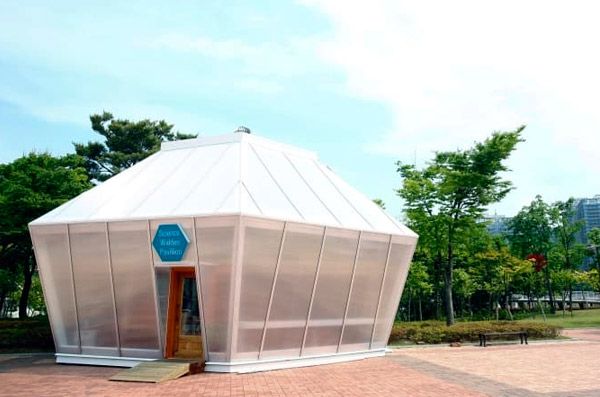New publications
There will be a charge for visiting the new bio-toilet
Last reviewed: 02.07.2025

All iLive content is medically reviewed or fact checked to ensure as much factual accuracy as possible.
We have strict sourcing guidelines and only link to reputable media sites, academic research institutions and, whenever possible, medically peer reviewed studies. Note that the numbers in parentheses ([1], [2], etc.) are clickable links to these studies.
If you feel that any of our content is inaccurate, out-of-date, or otherwise questionable, please select it and press Ctrl + Enter.
Public toilets are usually not very clean, but a unique “green” toilet for public use has appeared on the territory of one of the South Korean research centers, which not only looks attractive, but also helps to earn real money from your own waste.
The new development is called the Walden Science Pavilion and is essentially a laboratory that converts human waste into biofuel.
The new bio-toilet uses an anaerobic method - a grinder is placed inside, which dries and grinds waste to a powder state that has no characteristic odor, then the powder is moved to a special compartment for fermentation under the action of anaerobic bacteria (the chamber contains more than a thousand different microorganisms that can live without oxygen).
Under the influence of thousands of bacteria, the compost decomposes and releases carbon monoxide and methane, which are moved to a separate container. The carbon monoxide collected by scientists is used to fertilize green algae, and the methane is saved for later use as boiler fuel.
Human life on the planet is associated with the emergence of various waste - and the higher the technical progress, the more waste that poisons the earth and water, which affects the ecology of our planet. In recent years, researchers have presented many ways to process various waste, the main goal of which was to reduce the negative impact on the environment in the process of human life, and the project of South Korean scientists was no exception. The head of the Walden Science Pavilion project, Dr. Yaeweon Cho, noted that he and his colleagues had the goal of creating not only a new bio-toilet to save water and reduce operating costs at treatment facilities, but also to develop a real environmentally friendly system that supports innovations in the technological pan and allows turning human waste into money. In other words, Korean specialists sought to create a toilet that people would be interested in going to, and for this, financial interest is necessary. To encourage people to use the "Walden Pavilion", scientists are working on a special application for smartphones that will calculate the cost of waste and transfer a certain amount using an electronic transfer system. The idea of the Korean scientists is quite simple - a person uses the "Walden Pavilion" for its intended purpose, i.e. as a toilet, and receives a certain amount for this, which can be spent on buying a salad grown on biofertilizer.

While the Walden Pavilion is currently just a demonstration project, Dr. Cho's team is looking to expand the technology to the masses, and it's possible that these portable toilets will soon appear on campuses at other universities or large cities. Today, the unique portable toilet is available daily at Ulsan National University in South Korea.
